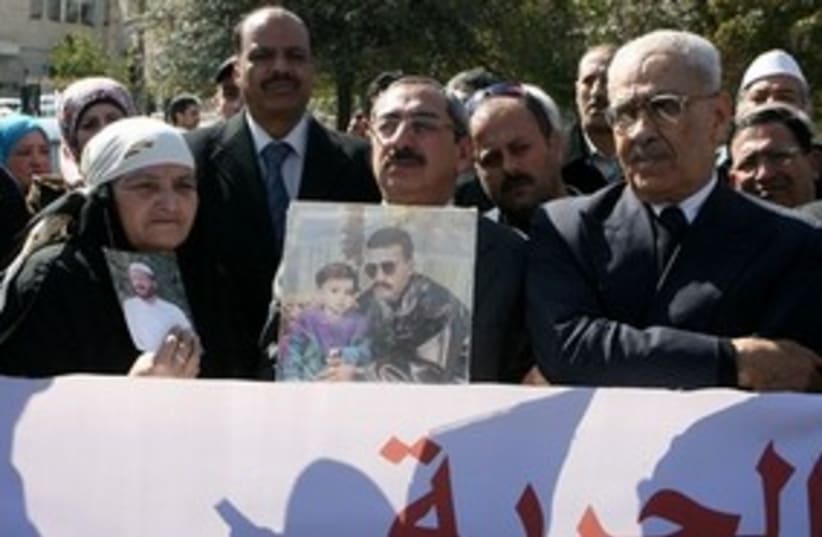RELATED:Jordan minister: Release soldier who shot IsraelisYaakov Hadas, the Ministry's deputy director general for the Middle East and the peace process, told the Jordanian official that Israel was shocked and disgusted by Mjali's comments, especially coming from the official in charge of law and justice in Jordan.Jordan's embassy in Tel Aviv has been without an ambassador since the summer, so the conversation was held with the ranking official in the embassy.Hadas said Israel expected an immediate and unequivocal condemnation of the remarks from the Jordanian government. He also said that Israel expected the Jordanian government to make clear that it rejected calls for Daqamseh's release, and clarification that he will continue serving his sentence. Daqamseh was sentenced to live in prison, which in Jordan translates into a 25-year sentence.Israel's envoy in Jordan, Daniel Nevo, passed on a similar message to the highest levels of the Jordanian government.Foreign Minister spokesman Yigal Palmor said Mjali's comments were especially jarring considering that Israel remembered when the late King Hussein came to Israel after the shooting to console the families of the murdered girls."We remember very well how King Hussein took a humane step and came to Israel to console the mourning families, went to the houses of mourning, sat on the ground and spoke to the parents. This was an act that touched everyone – the humanity of that action is something we can't forget. This should not be erased, and the Jordanian government must distance itself as clearly as possible from these calls," he said.
Jordan: Killer of seven Israeli girls won't be released
Foreign Ministry official tells envoy that Israel is "shocked and revolted" by Jordanian Minister's demanding Ahmed Daqamseh's release.

RELATED:Jordan minister: Release soldier who shot IsraelisYaakov Hadas, the Ministry's deputy director general for the Middle East and the peace process, told the Jordanian official that Israel was shocked and disgusted by Mjali's comments, especially coming from the official in charge of law and justice in Jordan.Jordan's embassy in Tel Aviv has been without an ambassador since the summer, so the conversation was held with the ranking official in the embassy.Hadas said Israel expected an immediate and unequivocal condemnation of the remarks from the Jordanian government. He also said that Israel expected the Jordanian government to make clear that it rejected calls for Daqamseh's release, and clarification that he will continue serving his sentence. Daqamseh was sentenced to live in prison, which in Jordan translates into a 25-year sentence.Israel's envoy in Jordan, Daniel Nevo, passed on a similar message to the highest levels of the Jordanian government.Foreign Minister spokesman Yigal Palmor said Mjali's comments were especially jarring considering that Israel remembered when the late King Hussein came to Israel after the shooting to console the families of the murdered girls."We remember very well how King Hussein took a humane step and came to Israel to console the mourning families, went to the houses of mourning, sat on the ground and spoke to the parents. This was an act that touched everyone – the humanity of that action is something we can't forget. This should not be erased, and the Jordanian government must distance itself as clearly as possible from these calls," he said.